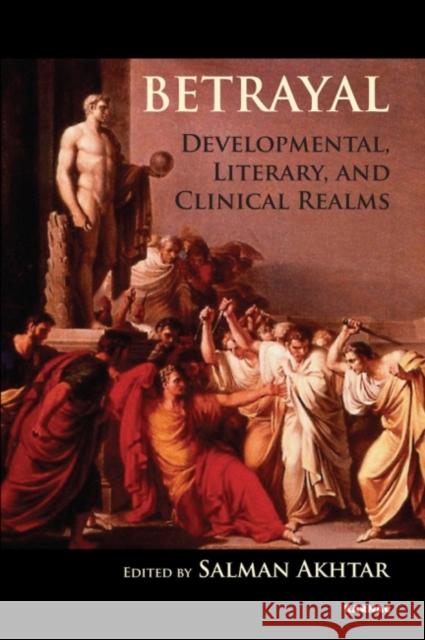Betrayal: Developmental, Literary and Clinical Realms » książka
Betrayal: Developmental, Literary and Clinical Realms
ISBN-13: 9781782200154 / Angielski / Miękka / 2013 / 248 str.
Betrayal: Developmental, Literary and Clinical Realms
ISBN-13: 9781782200154 / Angielski / Miękka / 2013 / 248 str.
(netto: 180,76 VAT: 5%)
Najniższa cena z 30 dni: 178,95
ok. 16-18 dni roboczych.
Darmowa dostawa!
Betrayal underlies all psychic trauma, whether sexual abuse or profound neglect, violence or treachery, extramarital affair or embezzlement. When we betray others, we violate their confidence in us. When others betray us, they pierce the veil of our innocent reliance. Betraying and feeling betrayed are ubiquitous to the scenarios of trauma and yet surprisingly neglected as a topic of specific attention by psychoanalysis.
This book fills this gap. Its first part deals with developmental aspects and notes that while the experience of betrayal might be ubiquitous in childhood, its lack of recognition by the parents is what leads to fixation upon it. Attention is also given to Oedipally-indulged and seduced children who feel betrayed later in the course of their development. Feelings of betrayal during early adolescence are also discussed. This section of the book closes with an account of situations where our bodies betray us. The realms of body image betrayal, body self betrayal, and the body's ultimate betrayal via physical death are addressed.
The second part of the book deals with literature and elucidates the myriad ways in which the theme of betrayal appears in Shakespeare's writings and in Oscar Wilde's poem -The Ballad of Reading Gaol-. Its final part pertains to clinical matters and has chapters on the compulsion to betray others and the unconscious need to be betrayed, the betrayal of a sacred trust in the form of childhood sexual abuse, extra-marital affairs, and the betrayal of patients by their analysts in the form of boundary violations. In this last-mentioned situation, severe damage occurs not only to the analyst, to the particular patient whose boundaries he has violated, but also to other patients who hear about the transgression from the -grapevine-. This chapter is a must-read for all training institutes and especially their ethics committees.











